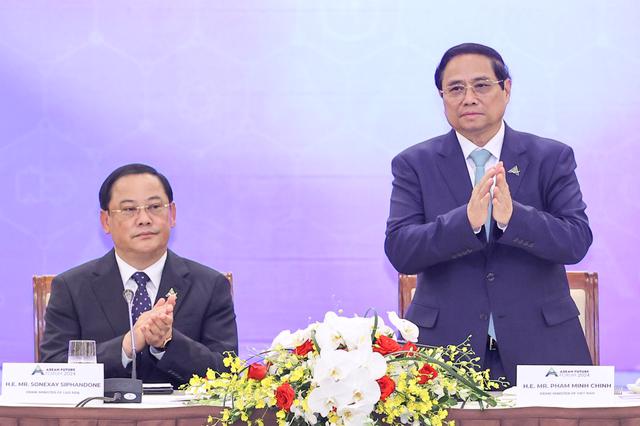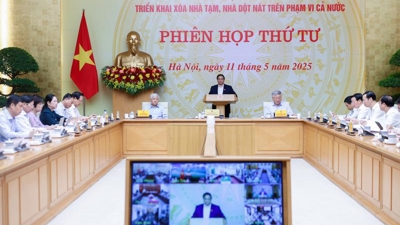ASEAN Sets Ambitious Goals to Become a Global Leader in Digital Transformation
ASEAN’s digital economy is expected to reach over $1 trillion by 2030, but challenges remain.

At a discussion with businesses from ASEAN countries and partners on April 23, Vietnamese Prime Minister Pham Minh Chinh outlined a vision for ASEAN to become a model for digital transformation globally.
ASEAN is well-positioned to be a leader in digital transformation due to several factors. The region boasts a large and young population, a growing middle class, and a network of extensive economic cooperation (estimated at USD 100 billion in 2023, an eightfold increase since 2016).
The ASEAN's Digital Economy Framework Agreement (DEFA) is expected to be finalized by the end of 2025, potentially making it the first regional digital economy agreement in the world. This agreement is expected to further boost ASEAN’s digital economy, which is projected to surpass $1 trillion by 2030.
Challenges to Overcome
However, ASEAN also faces significant challenges in its pursuit of digital transformation. One key challenge is ensuring equitable access to digital technologies across the region.
Currently, there are disparities in internet access and digital literacy between wealthier and poorer countries within ASEAN. Additionally, promoting self-reliance in digital development, rather than dependence on external actors, is crucial for ASEAN’s long-term success.
Overreliance on foreign technology companies could limit ASEAN’s ability to control the development and implementation of digital technologies within its borders.
Another challenge is addressing common issues that come with digital transformation, such as cybersecurity threats and the potential negative impacts of artificial intelligence (AI).
Cybersecurity is a growing concern for all countries as they become increasingly reliant on digital technologies. ASEAN countries will need to invest in cybersecurity infrastructure and expertise to protect their digital economies from cyberattacks.
Additionally, the development and use of AI raise concerns about job displacement and the potential for bias in AI algorithms. ASEAN countries will need to develop policies and regulations to mitigate these risks.

Prime Minister Chinh's Three-Pronged Approach
To address these challenges and achieve its ambitious goals, Prime Minister Chinh has proposed three key areas of focus for ASEAN.
The first is developing a robust information and communication technology (ICT) industry within the region.
This includes investing in research and development, building digital infrastructure, and developing a skilled workforce in ICT fields. A strong ICT industry is essential for the development of ASEAN’s digital economy.
The second area of focus is promoting the digitalization of industries across all sectors. This includes applying digital technologies to improve efficiency and productivity in areas such as manufacturing, agriculture, and services. Digitalization can help ASEAN businesses to compete more effectively in the global marketplace.
The third area of focus is improving digital management capacity and developing strong digital governance frameworks. This will be essential for ensuring the safe and secure development of ASEAN’s digital economy. Digital governance frameworks will need to address issues such as data privacy, cybersecurity, and intellectual property rights.
Prime Minister Chinh also emphasized the importance of close cooperation between ASEAN and its partners in achieving these goals. By working together, ASEAN can leverage the expertise and resources of its partners to accelerate its digital transformation journey.
Partners can provide ASEAN with financial assistance, technical expertise, and training in digital technologies.
If ASEAN can successfully implement these plans, it has the potential to become a global model for developing countries seeking to harness the power of digital technologies to drive economic growth and improve the lives of their citizens.
ASEAN’s success would demonstrate that it is possible for developing countries to leapfrog ahead in the digital age and close the gap with developed countries.







